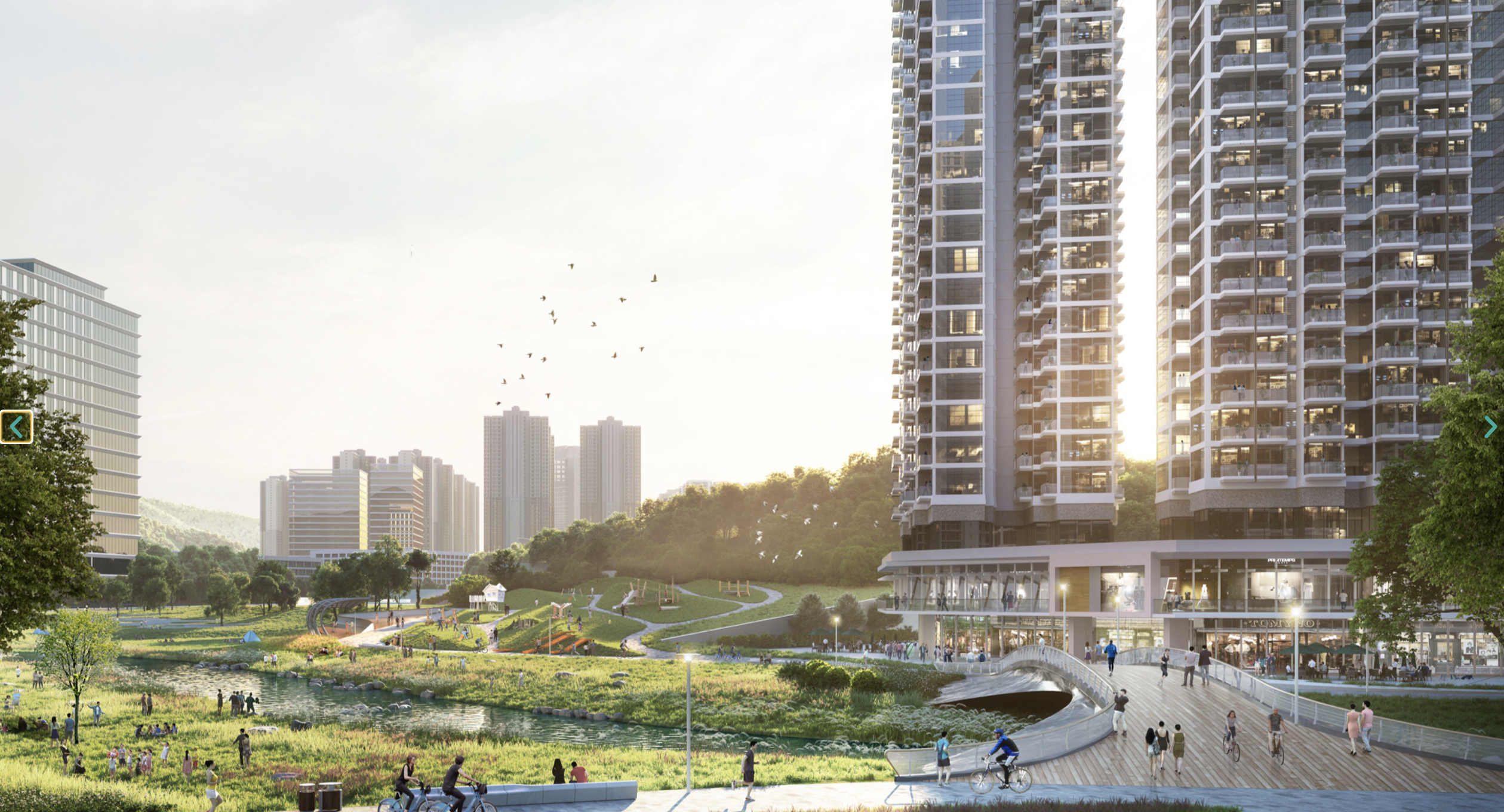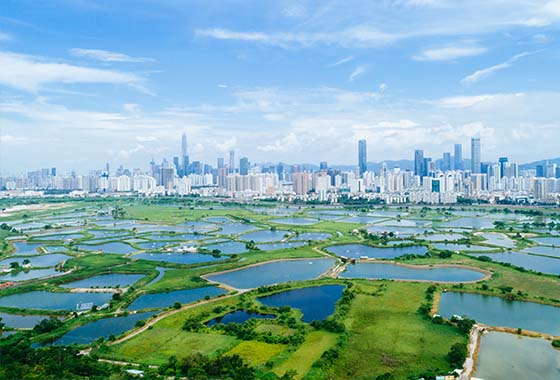Why Hong Kong must adopt nature-based solutions in the Northern Metropolis
This article appeared originally in South China Morning Post on 27 Nov, 2023.
Authors: Kitty Tam,Programme Lead at Civic Exchange, Calvin Au, Researcher at Our Hong Kong Foundation
-
Incorporating nature-based solutions can help resolve the tensions between conserving Hong Kong’s environment and promoting development.
-
Otherwise, the city risks falling behind its peers, missing out on high-quality development and being left out of national and global initiatives

The Northern Metropolis development plan faces many challenges in striking a balance between conservation and development. Although the area possesses valuable natural resources, such as wetlands, which are crucial for the city’s well-being, Hong Kong is dealing with limited land that is suitable for development, resulting in a severe shortage of living space and a stalled industrial transformation.
Developing the Northern Metropolis adjacent to the innovation and technology hub of Shenzhen is essential to improving Hongkongers’ quality of life. The plan for the San Tin Technopole, Chief Executive John Lee Ka-chiu’s recent policy address and the Northern Metropolis Action Agenda have all individually attempted to address conservation and development but lack widespread support.
Seeking the harmonious coexistence of conservation and development, environmental activists have put an emphasis on the protection of wetland conservation areas. Is the conflict between conservation and development inevitable? Nature-based solutions could be the answer.
Nature-based solutions, introduced in the early 2000s by the World Bank and International Union for Conservation of Nature (IUCN), encompass actions to protect, sustainably manage and restore ecosystems. This concept underscores the use of functioning ecosystems to effectively address societal challenges.
International bodies such as the Convention on Biological Diversity and the Intergovernmental Panel on Climate Change have integrated nature-based solutions into their global targets and recommendations. The IUCN introduced a nature-based solutions standard in 2020, providing a framework for design and verification.
Going beyond traditional conservation, the integration of nature-based solutions can meet diverse stakeholders’ needs. For instance, incorporating green building and blue-green infrastructure that follow the IUCN standard in urban planning can be effective in mitigating flooding and in climate adaptation.
A recent nature-based solutions forum hosted by The Nature Conservancy and Civic Exchange featured insights from local and national experts. Local projects showcased included The Nature Conservancy’s oyster reef restoration, using recycled shells for seawater purification and aquaculture.
Another example was Dr Billy Hau’s reforestation work at the University of Hong Kong. His team proposes a tree-planting plan as part of the Northern Metropolis’ development, potentially storing more than 300,000 tonnes of carbon dioxide – equivalent to the annual emissions of about 100,000 people – contributing to the Northern Metropolis’ environmental capacity.
These nature-based solutions applications don’t hinder the Northern Metropolis’ development but rather complement and enhance its value with few public resource requirements. So why have nature-based solutions applications not been implemented on a larger scale with a standardised approach despite promising trials?
Hong Kong faces two potential obstacles to the widespread adoption of nature-based solutions. First, the conservation of nature appears to have a notably low priority in urban development decisions, as highlighted by the failure to update Hong Kong’s first Biodiversity Strategy and Action Plan after it lapsed in 2021.
Public awareness remains low, and the authorities only addressed the next stage of work in this year’s policy address. This is in stark contrast to China’s proactive approach to promoting an “ ecological civilisation” at the national level.
Beijing has vigorously promoted ecological conservation in the past few years. It not only hosted the 15th Conference of the Parties to the United Nations Convention on Biological Diversity and advocated for the adoption of the Kunming-Montreal Global Biodiversity Framework but also collaborated with the IUCN to jointly publish “Towards Nature-based Solutions at scale: 10 case studies from China”.
Additionally, the Ministry of Natural Resources established the Nature-based Solutions Asian Hub, laying a leading foundation for international nature conservation and nature-based solution initiatives.
If Hong Kong fails to grasp and promote the application of nature-based solutions, it will render itself unable to prioritise nature conservation in urban development. It will also miss the opportunity to enhance the quality of the Northern Metropolis’ development and lack a common language for integrating into the overall national development and taking part in international exchanges, risking marginalisation on important issues.
Second, concerning the lack of a stable funding mechanism for nature-based solutions projects, Hong Kong should actively address this challenge as it positions itself as a hub for green finance.
To achieve the “Nature Positive” global biodiversity conservation goal by 2030, the international community is developing “science-based targets for nature” to guide businesses on their ecological responsibilities and effective conservation actions. The Task Force on Nature-related Financial Disclosures framework was also introduced, guiding businesses and financial institutions in managing the financial disclosure of nature-related risks.
With increasing business awareness of natural capital and risks, more market funds are expected to flow into nature-based solutions-related projects. Government leadership can expedite project funding by allocating a portion of the HK$240 billion (US$30.8 billion) earmarked for climate change efforts to nature-based solutions initiatives. Following Singapore’s Garden City Fund model, the government can match corporate and individual donations to support suitable conservation projects.
In response to the global climate change and biodiversity loss crises and Hong Kong’s shift in urban development focus from quantity to quality, decision makers must address the tensions between conservation and development when planning the Northern Metropolis.
By integrating conservation and development while applying nature-based solutions to the planning, design, construction and management of all future development projects, Hong Kong can revolutionise the Northern Metropolis’ development and tell a story of a more sustainable, high-quality city to future generations.



